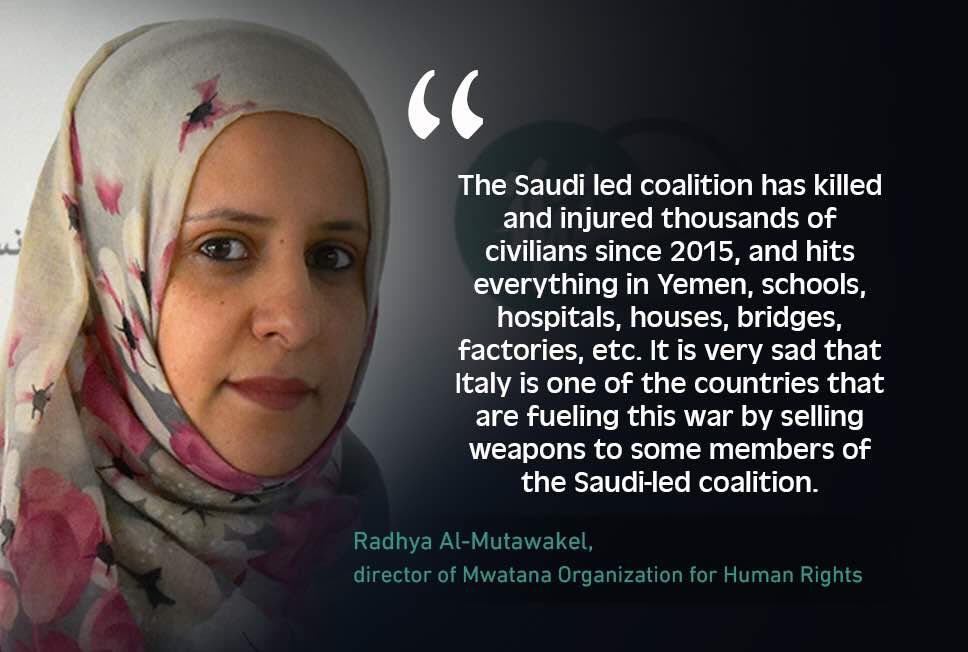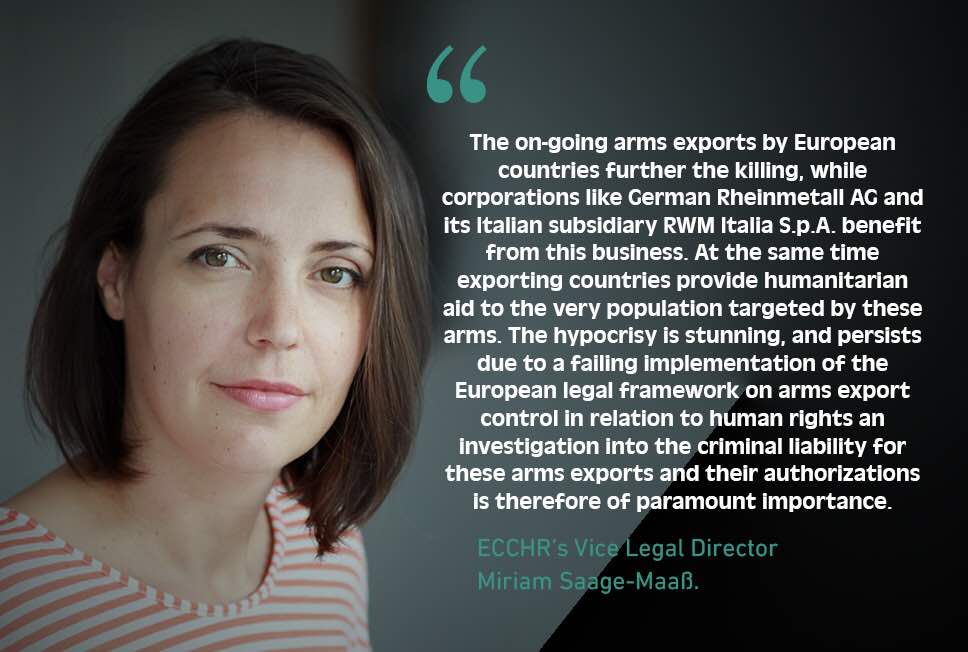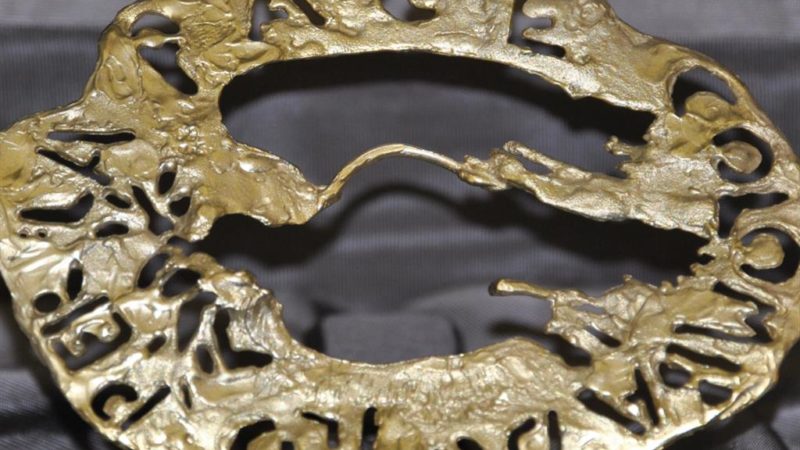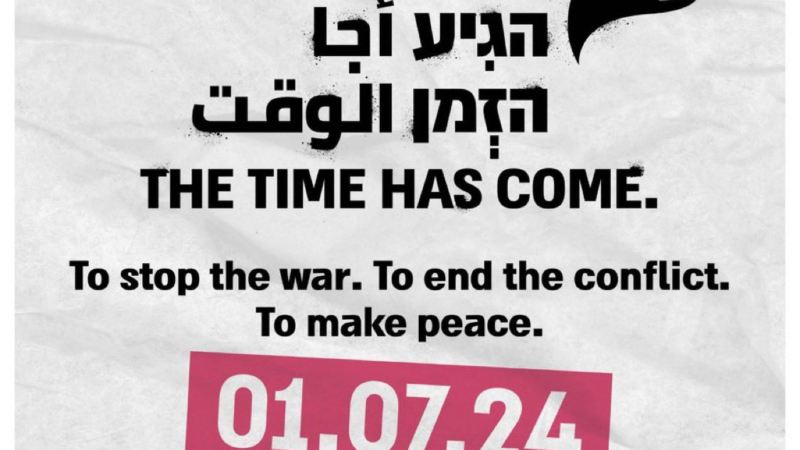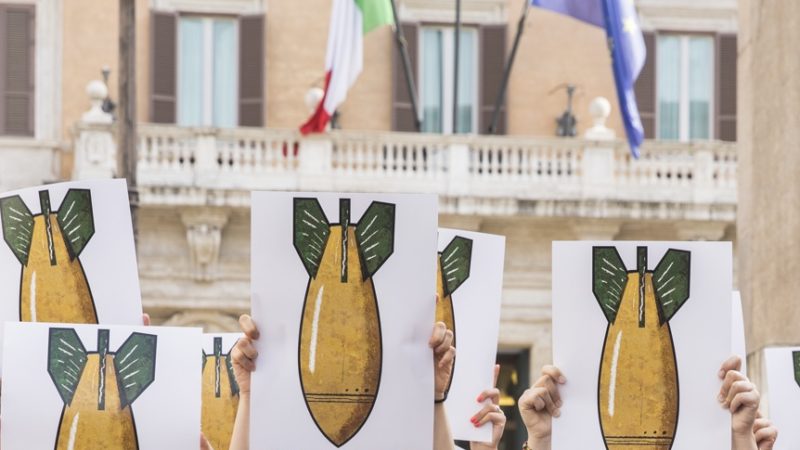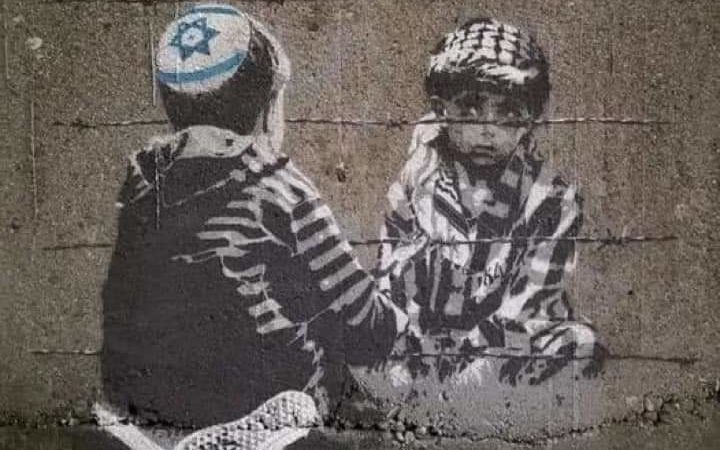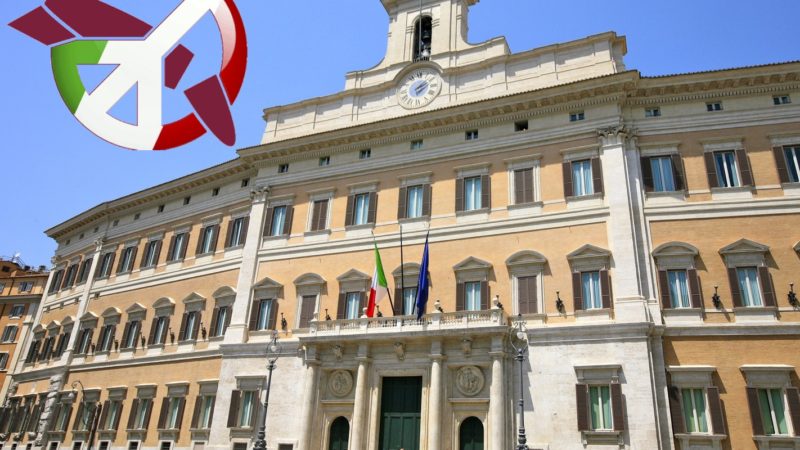Hearing on UAMA and RWM Italia’s role in deadly airstrike: Court must ensure that investigations continue
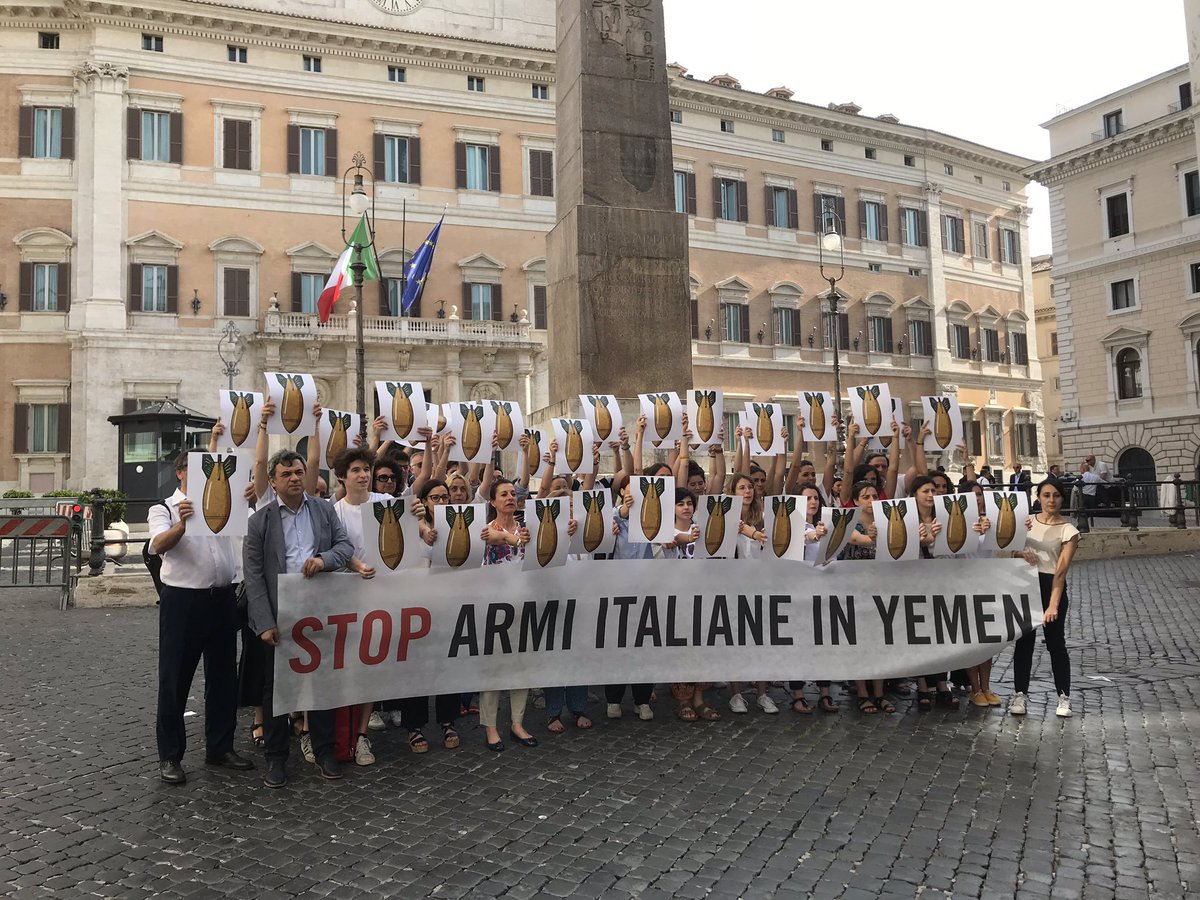
In 2016, the Saudi/UAE-led military coalition allegedly killed a family of six in an airstrike in the village of Deir Al-Hajari in northwest Yemen. Bomb remnants were found at the site of the attack that were manufactured by RWM Italia SpA, a subsidiary of the German arms manufacturer Rheinmetall AG. In April 2018, the European Center for Constitutional and Human Rights (ECCHR) with its Yemen-based partner Mwatana for Human Rights and Italian organization Rete Italiana Pace e Disarmo submitted a criminal complaint against RWM Italia managers and senior officials of Italy’s National Authority for the Export of Armament (UAMA).

In October 2019, the Italian Public Prosecutor’s Office requested to dismiss the case, which the three organizations appealed. Today’s hearing will allow the Office for Preliminary Investigations in Rome to decide whether the criminal investigation can continue. A verdict is expected in the upcoming few weeks.
“If Italy is serious about human rights, it should respect them. This case deserves a thorough investigation, and Yemeni victims accountability and redress. Governments like Italy that have sold weapons to Saudi Arabia, the UAE and other coalition members are legally and morally implicated in serious human rights violations in Yemen, some of which are war crimes,” says Radhya al-Mutawakel, chairperson of Mwatana for Human Rights.
Despite confirming that the RWM Italia suspension lug found at the scene of the Deir Al-Hajari attack may have been exported in November 2015, and despite the fact that UN bodies, international NGOs and Yemeni organizations had documented repeated Saudi/UAE-led coalition violations, the Italian prosecutor refused to carry out a complete assessment of Italy’s and an Italian weapons manufacturer’s potential role in crimes in Yemen.
“This case is not about mere business or improper commercial advantages, it’s about Italy’s potential responsibility for crimes committed in Yemen. The Saudi/UAE-led coalition has killed and injured thousands of civilians since 2015 in indiscriminate and disproportionate attacks in Yemen, enabled by arms exports from Europe. If RWM Italia managers and UAMA officials are complicit in crimes committed by the Saudi-led coalition and their partners, they must be held accountable by the Italian justice system. Closing the investigation today would reinforce the strong accountability gap for the victims of the Yemeni conflict,” adds Miriam Saage-Maasz, ECCHR Vice Legal Director.
Meanwhile, in December 2020, the Italian parliament adopted a Resolution requesting a renewal of the suspension for shipments of bombs and air missiles (and new authorizations related to them) to Saudi Arabia and the UAE already active since July 2019. “This shows that even the Italian parliament has realized the dramatic nature of the situation, and the negative impact of the flow of weapons also from our country: no peace will be possible in Yemen without stopping them. We therefore call for respect for national and international laws and for recognition of the responsibilities of those who have ignored them, fueling a dramatic conflict,” says Francesco Vignarca, Campaigns Coordinator for Rete Italiana Pace e Disarmo.
On 11 December 2019, the three organizations together with Amnesty International, Campaign Against the Arms Trade, and Centre Delàs submitted a communication to the International Criminal Court, calling for an investigation into the responsibility of corporate and governmental actors in Italy, Germany, France, Spain and the United Kingdom. The submission described 26 coalition airstrikes that research indicates may have used European-produced bombs.
